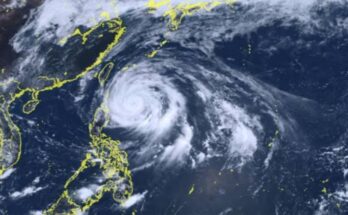RESIDENTS outside Kanlaon’s 4 km.-radius permanent danger zone (PDZ) are advised to prepare in case of increased volcanic activity, Philippine Institute of Volcanology and Seismology (Phivolcs) Director Teresito Bacolcol said.
Phivolcs announced Tuesday night an elevated sulfur dioxide (SO2) gas flux, reaching 7,307 tons — the highest since instrumental gas monitoring began.
“We advise local government units to remain vigilant for any possible escalation in volcanic activity. Even if you live outside the PDZ, be prepared in case the volcano’s activity increases, which could extend the danger zone,” Bacolcol said.
Phivolcs recommended that the public stay out of the PDZ to avoid risks from sudden explosions, rockfalls, and landslides.
Gas monitoring in Kanlaon started around 2010.
Bacolcol said Tuesday’s elevated gas flux could be due to the interaction between groundwater and hot volcanic gases or shifts in magma movement.
“When groundwater heats up, it increases steaming activity, and this steam can carry dissolved SO2 to the surface, thereby increasing emissions,” he said.
Bacolcol said another possibility is that magma is moving closer to the surface, allowing more gases to escape, leading to increased gas emissions.
He said Phivolcs could not forecast how much gas a volcano could emit.
“The amount of SO2 emissions varies by volcano and is not the same for all,” he said.
He cited as example the Taal Volcano recording its highest SO2 emission since the 2020 eruption at 25,456 tons on Oct. 5, 2021. In contrast, Mayon Volcano’s highest SO2 emission during its six-month effusive eruption last year reached 4,756 tons on Aug. 16, 2023.
Meanwhile, Alert Level 2 (increasing unrest) prevails over Kanlaon.
This means that there is current unrest driven by shallow magmatic processes with increased chances of leading to explosive eruptions or even hazardous magmatic eruptions from the summit crater, the Phivolcs advisory read. (PNA)





